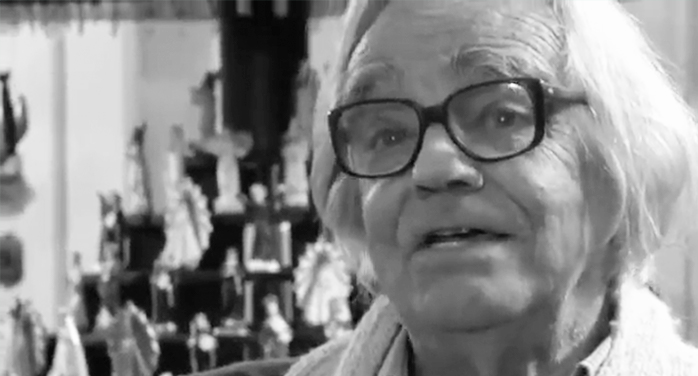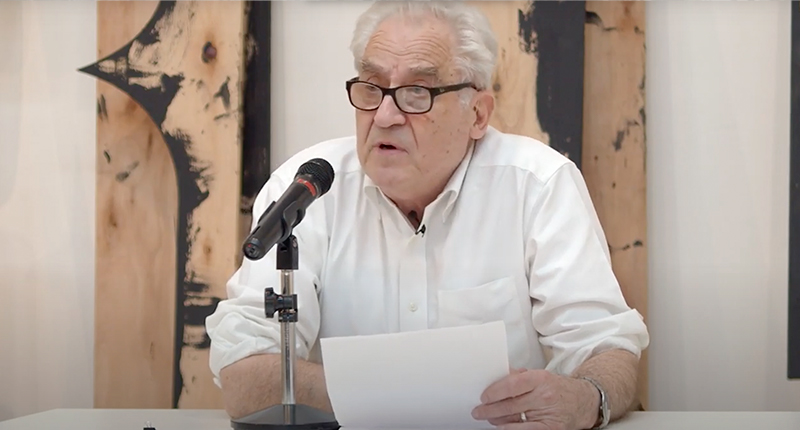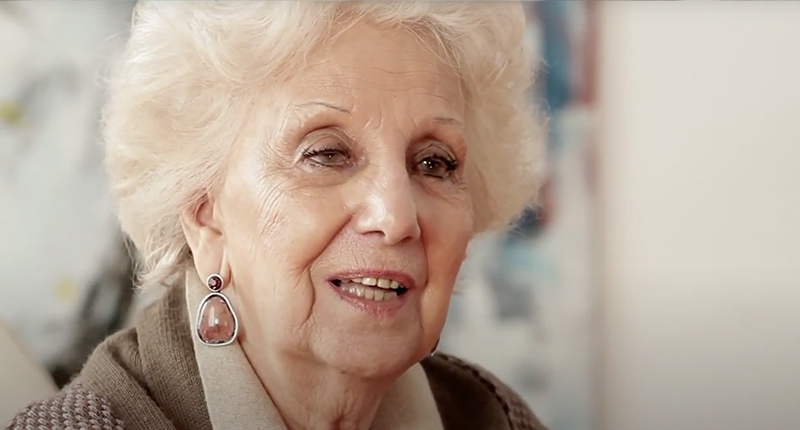"Ensayos sobre un tribunal al poder de la economía política"
Alicia Herrero
22.03.19 - 09.06.19
OUT (OF) THE LAW
In a famous Kafka tale, a miserable peasant waits for decades at the gates of the Law to be let through, to finally die without learning that they had always been open. The Law of Capital works in reverse. It keeps us in an interior confinement, under the guise of complete freedom (of the market, of expression, of citizenship, whatever it may be), but it never shows us the exit door. Both, however, complement each other. The peasant does not know that he could, by his own means, access a Law that frees him from the exploitation. We do not know that by re-founding the work of the Law we could find a way out.
And is that the domain of the Law of Capital is made of something more -much more- than heavy gates guarded by armed guards (extreme resources for when everything else is not enough). It is made, for example, of words, of a true language that resonates in our ears until we make us believe that it is our “natural” language, that they are words of our own creation. And it is made of rituals, gestures, behaviors, habits, spaces, images, objects, mythical stories, masquerades, performances, staging. Of everything, then, what makes up what anthropology calls culture. Capital is a culture that appears as nature: its Law seems to us as fatal as, let’s say, the Law of gravity. And it is true that it is fatal: it kills a little every day with the utmost naturalness.
Essays on a court by Alicia Herrero suggests another way of acting the Law. A way that involves modifying spaces, images, gestures, habits, etc., to put yourself outside this Law; to generate another Law that clearly points to where the doors are, the exits, the authentic Nature. For example, the space of tragedy (and what else is the experience lived under the Law of Capital?), Which makes room and yields its voice to the Choir, so that it can bear witness by withdrawing from its place of victim (like than in classical antiquity, and that continues in the Law of Capital, the witness was a martyr: who testified of his faith at the cost of the sacrifice of his body).The corridors of the Law are usually dark, confusing, silent. Here, crossing a corridor of critical clarity, the geometries of the Law turn on themselves to illuminate, with their own movement, the evidence of the need for a trial of the Law of Capital, where the Choir is another kind of witness: who he remakes the Law with his collective and polyphonic voice. There, on the premises, it will be seen that the instances of the presentation of the case, or of the accusations, are embodied by women. It should not be a chance. They are, today, a bit outside the Law (of Capital). They are not the only ones, from now on. The whole wide and painful space of exclusion, marginalization, exploitation, arbitrary domination, colonization of consciences – that is, almost everyone – is the potential precinct for a regeneration of the Law. It even seems to suggest the work of Alice, of the generation of a new class of Judge. Because, it is already known: with the Law of Capital, the judge, by definition, fails.
Eduardo Grüner
The video is part of the exhibition
“Ensayos sobre un tribunal al poder de la economía política”
Database Space – Parque de la Memoria 03/22/2019 to 06/09/2019
Audiovisual production:
Video: Opening.
Performer: Agustina Frontera Paz.
Video: Accusation.
Performers: Carla Crespo, Lorena Vega and Julia Perette.
Casting: Lila Lisenberg.
Makeup: Dino Balanzino
Realization: Cocuyo Club
Acknowledgments: Center for Legal and Social Studies.




